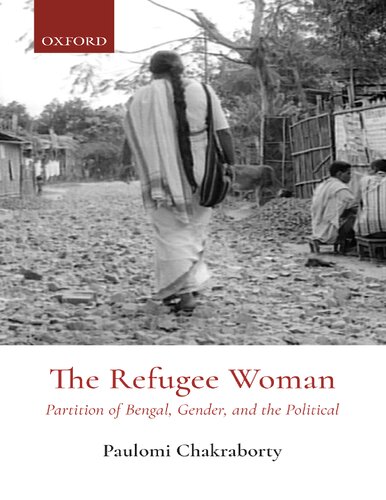

Most ebook files are in PDF format, so you can easily read them using various software such as Foxit Reader or directly on the Google Chrome browser.
Some ebook files are released by publishers in other formats such as .awz, .mobi, .epub, .fb2, etc. You may need to install specific software to read these formats on mobile/PC, such as Calibre.
Please read the tutorial at this link: https://ebookbell.com/faq
We offer FREE conversion to the popular formats you request; however, this may take some time. Therefore, right after payment, please email us, and we will try to provide the service as quickly as possible.
For some exceptional file formats or broken links (if any), please refrain from opening any disputes. Instead, email us first, and we will try to assist within a maximum of 6 hours.
EbookBell Team

4.4
82 reviews
Paulomi Chakraborty closely examines three significant Partition texts from West Bengal, Ritwik Ghatak's Meghe Dhaka Tara, Jyotirmoyee Devi's Epar Ganga, Opar Ganga, and Sabitri Roy's Swaralipi, situating them against a broad and densely sketched context in conversation with cultural debates and contemporary feminist scholarship, to trace a radical potential in the figuration of the refugee woman. She argues that this figure, animated by the history of the political left and refugee movements and shaped by powerful cultural narratives, can contest and reconstitute the very political imagination of 'woman' that has been shaped by the long history of dominant cultural nationalism.
The Refugee Woman makes an important contribution to the scholarship on gender and the Partition by attending to the less examined case of Bengal. Its detailed account also elucidates the nationalist, communal, and Communist gender politics of a key period in post-Independence Bengal.